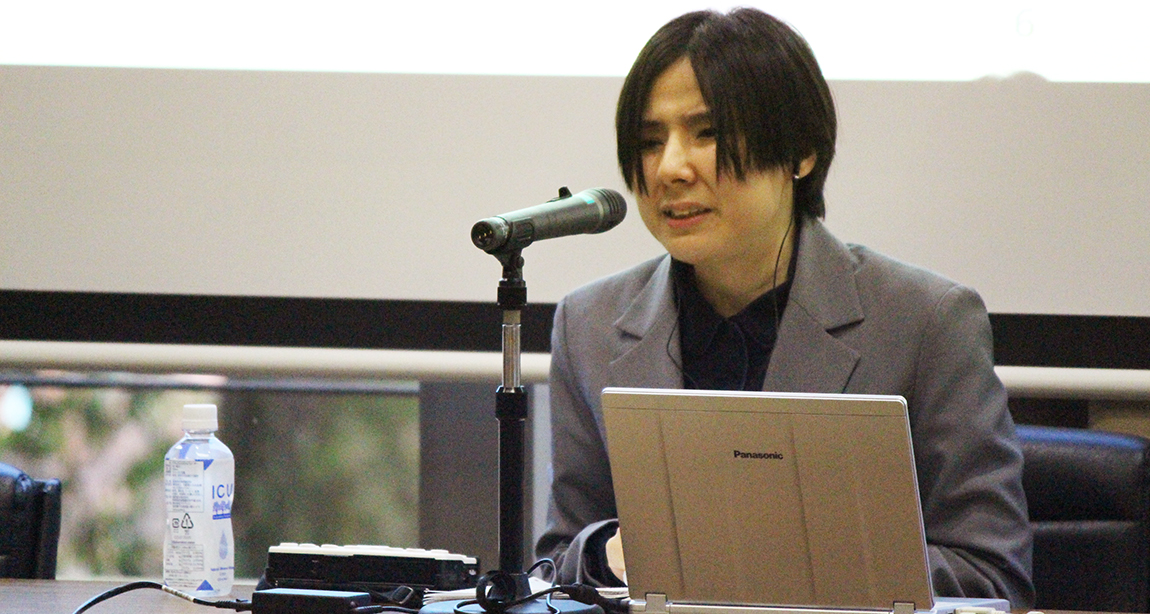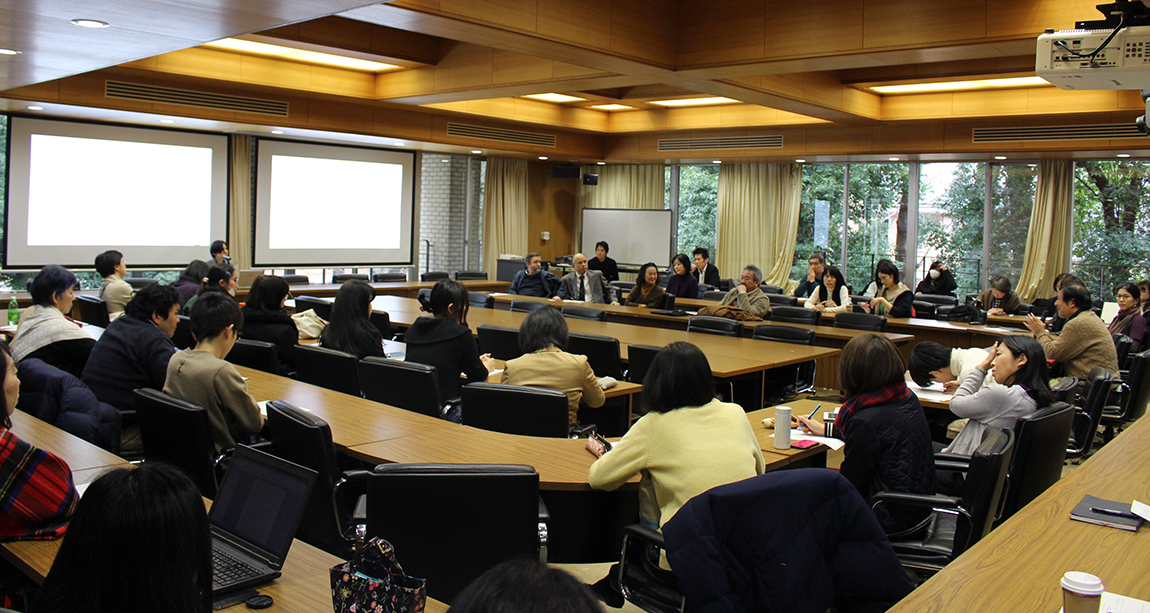NEWS
20th Human Rights Seminar is Held
Update: December 18, 2017

On December 8 (Fri.), the 20th Human Rights Seminar entitled "Changing from 'It's Your Problem' to 'It's Our Problem for Coexistence' ―Learning Together and Living Together in Order to Build a Society of Coexistence" was held. This seminar is held by the ICU Human Rights Committee and Human Rights Counselors' Meeting, which conduct counseling and educational activities with regard to human rights, every year sometime around the time of "Human Rights Day" (December 10).
This year, Yasuko Futaba, an alumna of ICU (class of 2003) and currently an assistant professor by special appointment at the Center for Barrier-Free Education, Graduate School of Education, the University of Tokyo, was invited to speak. In her talk, Ms. Futaba recalled what she became aware of during her life as a university student with a visual impairment, and what she thought was needed to create a society where people with disabilities can coexist with people who do not have disabilities.
Looking back at her life as a student at ICU, Ms. Futaba spoke of the support her friends at the university provided to her for her studies, such as forming a study group for her, and inputting the contents of her textbooks into a personal computer and making it possible for her to listen to the contents with screen-reading software. But thinking back at how she felt back then, Ms. Futaba recalled feeling some anxiety, thinking, "At some point, they are going to tell me that being with me is tiring."
However, Ms. Futaba related that during the course of receiving such support, she began to realize something. She explained, "My friends would always get angry when people around them said, 'It's really admirable that you are providing such assistance.' At first, I couldn't understand why being told something like that would make them angry. But when I would hesitate to try something new, they would say to me, 'Why don't you give it a try? If you want to do it, you should do it. If someone is against you giving it a try or thinks it's beyond you, then that's their problem, not yours.' As I listened more and more to the words of encouragement my friends gave me, I came to realize something. And that was my friends didn't look at me as 'a person with a disability'; instead, they looked at me as a friend who was fun to be with and as a classmate who was trying to get an education, just like they were. So the various issues that arose by being together with me were taken as being issues that concerned them as well, so they wanted to find ways of resolving those issues."
Furthermore, she maintained that in order to realize a society where problems involving disabilities do not exist, it is essential that everyone think of those problems as their own problems. At the end of Ms. Futaba's talk, she expressed her thoughts to the seminar participants saying, "With regard to problems involving people who have 'differences' such as disabilities, as long as it is believed that the problem lies in the 'difference,' the problem will not be solved. I feel that it is when everyone believes that the problem is his or her own problem that coexistence becomes possible. If both people with disabilities and people without disabilities choose to coexist, and if any problems that arise from the process leading up to that objective are accepted and dealt with as their own problems, then realizing a society where all can live and learn together without discrimination is not that far away.
During the Q-and-A session, students asked questions related to changes that have taken place since the Law to Eliminate Discrimination Against People with Disabilities was enacted, and as Ms. Futaba has been involved in various activities, including international cooperation activities, there were questions about the details of those activities.

